|
|
|||||
This week, we look at recent wins in the fight against money laundering and corruption. Also, mosquitoes are put on notice in Cameroon and African calls for international reforms grow louder. |
|||||
|
|
|||||
Top newsAnonymity gets outed: Moving and hiding illicit money is getting harder. That’s thanks to a spate of new or improved anti-corruption measures. Last week, the EU reached an agreement that will enable civil society and journalists to access information on who owns and controls companies. Meanwhile in Canada, federal corporations are now required to file company ownership information, which will be available to the public. And Moody’s launched a tool that combs through a database of 472 million companies and flags potential shell companies, entities commonly used to launder and hide illicit money. ONE has long campaigned for this kind of transparency because anonymous shell companies are widely recognised as the “getaway car” for grand corruption. With upwards of 100 countries committed to or already implementing company ownership registers, the future looks less secretive than it did just a few years ago. 🥳  Buzz, off: Cameroon has launched the world’s first mass malaria vaccination programme, marking a historic milestone in the global fight against malaria. 18 other African countries also plan to roll out the Mosquirix vaccine in 2024. Africa accounts for 95% of all malaria deaths, mostly children under 5. While Mosquirix took 40 years to develop, its quick rollout is a testament to Gavi, the Vaccine Alliance and its crucial role in ensuring equitable access to life-saving vaccines. Gavi’s next challenge: secure funding to continue helping transform Africa’s public health systems. Its once-every-five years financing replenishment kicks off in June. Stepping into the void: US Secretary of State Antony Blinken went on a diplomatic tour of four African countries this week, seeking to counter Chinese and Russian influence in the region. His stops included Angola, Cabo Verde, Côte d’Ivoire, and Nigeria. In Cabo Verde, US grants will support the country’s regional economic integration. In Angola, the US is lending US$250 million to help extend railway lines from the Atlantic coast to the DRC and Zambia. China has recently scaled back its lending in Africa, and some of its investments haven’t panned out, creating an opening for the US. But the US has a lot of catching up to do: China loaned Angola US$42.6 billion between 2000 and 2020. Drone diplomacy: While in Côte d’Ivoire, Blinken pledged US$45 million in additional funding from the US to boost security along the West African coast. Blinken’s visits to Côte d’Ivoire and Nigeria come at a time when both countries are grappling with heightened insecurity. Recent coups, growing anti-West sentiment, and deepening Russian engagement in Burkina Faso, Chad, and Niger have disrupted longstanding counterterrorism operations in the region. That’s left West Africa’s coastal countries vulnerable to violent extremists. The US is looking to secure more friendly locations for its military drone bases to help fight the spread of al Qaeda and Islamic State in the region. Mass appeal: The Non-Aligned Movement Summit and the Third South Summit – which both took place in Uganda this past week – were dominated by calls to reform the international financial architecture and multilateral institutions and to find solutions to the debt crisis. The two geopolitical groups have collective clout: each claims at least 120 member states (mostly from the Global South) and represents more than half the world’s population. Both summits laid bare simmering frustration over a global order that isn’t working for all but a handful of "developed" countries. 📢 What’s the plan?: The long-awaited Italy-Africa summit will take place Sunday and Monday in Rome. The summit is part of Italian Prime Minister Giorgia Meloni’s vision to establish a more equitable and cohesive partnership with African countries. The cornerstone of that vision is the so-called “Mattei plan,” a multi-year strategy for Africa engagement that Meloni has been referencing since coming into power. Yet little is known about the plan’s substance. But stemming illegal migration and tapping into Africa’s oil and gas reserves are likely key pieces. Eni, the partially state-owned Italian oil giant, has already been busy securing or expanding deals with Algeria, Angola, Libya, Mozambique, and the Republic of Congo. From the ONE Team
The numbers
 |
|||||
|
|
|||||
Quote of the week
|
|||||
|
|
|||||
What you should read, watch, and listen to:
|
|||||
|
|
|||||
A LOOK AHEAD26 January: International Day of Clean Energy 28 - 29 January: Africa-Italy Summit 30 January: 2024 Partnership Forum of the Economic and Social Council (ECOSOC) in New York City, US. |
|||||
|
|
|||||
|
|
|||||
The ONE Campaign’s data.one.org provides cutting edge data and analysis on the economic, political, and social changes impacting Africa. Check it out HERE. |
|||||
|
|
|||||
Did you like today's email?Loved it Mehhh Hated it |
|||||
|
|
|||||
Did you like today's email?Loved it Mehhh Hated it |
|||||
|
|
|||||
Wie hat dir dieser Newsletter gefallen?Richtig gut! Ging so… Überhaupt nicht. |
|||||
|
|
|||||
|
|||||
|
|||||
|
|||||
|
This email was sent by ONE.ORG to test@example.com. You can unsubscribe at any time. ONE Campaign |
